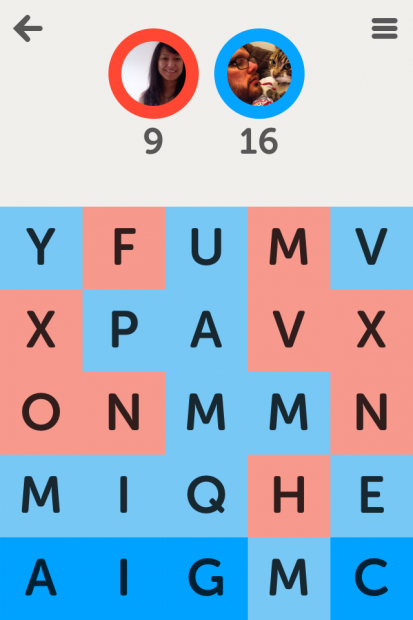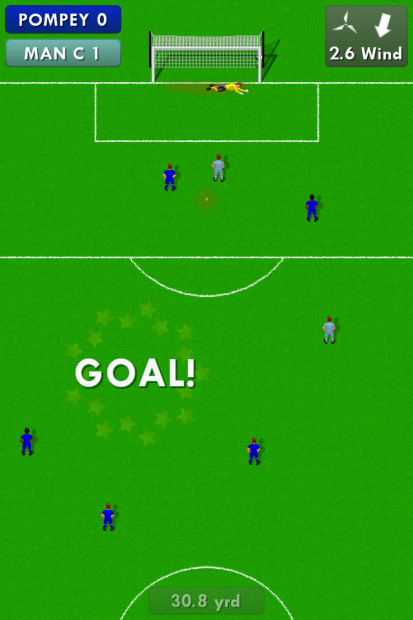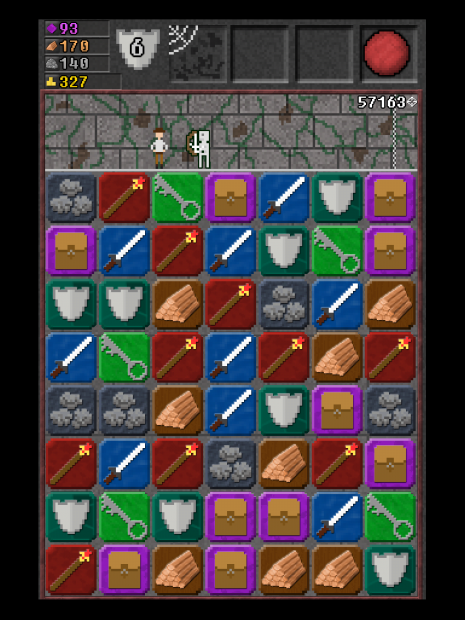I’ve spent a lot of time in 2012 playing games, but not a lot of time writing about them. As I did last year, I’d like to tell some stories or share some thoughts about the ones that meant the most to me this year. I’ll be posting one a day until Christmas. See all Games of 2012 posts.
Loren Brichter’s Letterpress is all kinds of wonderful. This is probably not new information to you. A little bit Scrabble, a little bit Othello, all tied together with a perfect minimal design – it was a breath of fresh air in the iOS gaming scene this year. Not having played it is some sort of disservice to yourself.
Just a week or two ago, my friend Lia picked up a new-to-her iPhone 4S. As she was telling me about it, she made a telling comment:
> just realized: i will finally get to play letterpress now that everyone’s sick of it.
And that got my mind churning a bit.
I’ve been worried a bit lately about the longevity of good games. A strong game – especially one that relies on a network component – requires a constant level of care, feeding, and gamer interest to thrive. Be it [a studio closure](http://toucharcade.com/2012/08/30/freeverse-hit-with-massive-layoffs-less-than-a-week-after-co-founders-leave-potentially-shut-down-entirely/) or [middleware getting discontinued](http://www.rockpapershotgun.com/2012/12/10/the-spy-who-went-into-the-cold-gamespys-casualties/) or [servers being shutdown](http://www.gamespot.com/news/ea-shutting-down-over-a-dozen-game-servers-6366856) – games that once grew a following can quickly become unplayable through business decisions. (Of course, the crowd can always [head for the door for no discernable reason](http://www.forbes.com/sites/insertcoin/2012/05/04/draw-something-loses-5m-users-a-month-after-zynga-purchase/).)
One of the games I featured last year, [Glitch](https://vjarmy.com/archives/2011/12/games-of-2011-glitch.php), [just shut down last weekend](http://www.pcworld.com/article/2019337/this-is-how-you-shut-down-your-mmos-servers-for-good-glitchs-graceful-exit.html). MMOs come and go, as they have since the format became popular – and I don’t think I ever really expected Glitch to be around forever. But it died ahead of its time, and there’s no way to convey how it really functioned to someone who never experienced it.
Letterpress may not seem in danger of this. Loren released the game on his own, and so long as he is able to keep supporting it, it should be fine, right? Except for the small fact that he built it on top of Apple’s Game Center – and while I doubt Game Center would disappear almost overnight [as OpenFeint just did](http://venturebeat.com/2012/11/16/gree-puls-plug-openfeint/), these things can and do happen.
I work in IT; having just gone through Hurricane Sandy, disaster recovery has become the word on everyone’s lips once again. I urge people who work in the gaming industry to make sure they consider the unthinkable when architecting their games. What happens if the code libraries you use never get updated and break? What if you get bought out and can never work on the game again – and then that company discontinues it? What happens if your servers die? What happens if *you* die?
I’m reminded of Duane Blehm, a guy who churned out a few small shareware titles in the late 80’s for the Mac. If you grew up with classic Macs, you probably remember [Stunt Copter](http://www.d4.dion.ne.jp/~motohiko/stuntcopter.html), and maybe even [Cairo Shootout](http://www.youtube.com/watch?v=ID1NKqROe_4). Duane died unexpectedly in his 30s, which could have left his games stuck in limbo forever. Luckily, his parents opted to release the source code into the public domain – and [Stuntcopter still lives on](https://itunes.apple.com/us/app/stuntcopter/id308733440?mt=8).
I don’t want smart, well-conceived games like Letterpress to ever get lost to history; let’s do everything we can to make sure they don’t.
Letterpress is available as [a Universal iOS app](https://itunes.apple.com/us/app/letterpress-word-game/id526619424?mt=8).


